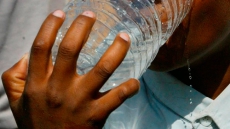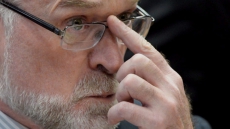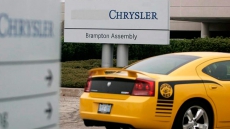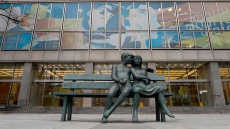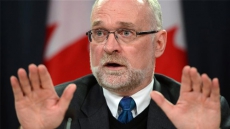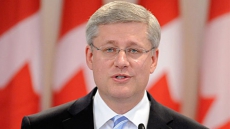HALIFAX — The Nova Scotia Barristers' Society has the authority to deny accreditation to graduates from a Christian university in British Columbia that requires students to abstain from sex outside heterosexual marriage, a lawyer for the self-regulating body told a court hearing Thursday.
Marjorie Hickey told the Nova Scotia Supreme Court that the law society draws its authority from a section in the Legal Profession Act that says the purpose of the society is to "uphold and protect the public interest in the practice of law."
Hickey told the judicial review hearing that the law society has broader powers than just overseeing the qualifications and conduct of its members.
She went on to say that the law society imposed the ban on articling students from a proposed law school at Trinity Western University in Langley, B.C., because its requirement regarding heterosexual marriage represents unlawful discrimination against gays and lesbians under the charter and violates the Nova Scotia Human Rights Act.
"What the barristers' society is doing is saying that a law degree ... cannot be from an institution that endorses unlawful discrimination," she told Judge Jamie Campbell.
Hickey said that when the law society made its decision back in April, the move marked the culmination of a comprehensive consultation process that included many briefs from those in support of the school.
She also said it was important to remember that the law society has implemented many reforms that have focused on eliminating discrimination in the justice system. Those changes include measures aimed at eliminating barriers for "historically disadvantaged groups."
She said the law society has also done its best to reach out to the lesbian, gay, bisexual, transsexual and queer communities.
The university's so-called community covenant, which all students are required to sign, stands opposed to the law society's core values, she said.
Earlier this week, a lawyer for the university told the court the law society overstepped its jurisdiction when it decided to ban graduates from the bar admission program unless the school dropped the requirement.
Brian Casey said the law society has jurisdiction over its membership in Nova Scotia, nothing more.
He suggested the court should overturn the law society's regulation on the grounds that it infringes on future students' charter rights of freedom of religion, freedom of expression and freedom of association.
Casey said the barristers' society has no authority to refuse a student because of the school's conduct.
He argued that the law society had failed to produce evidence that the proposed law school — to open in 2016 — would harm anyone in Nova Scotia.
However, Campbell said it appeared the law society was arguing that if it accepted articling students from a school that promoted discriminatory behaviour, that could lead to stress in Nova Scotia's gay community.
Casey said there was no proof of that before the court.
The school bills itself as the largest, independent Christian liberal arts institution in Canada with about 4,000 students.
Earlier this month, the British Columbia government revoked its support for the law school, saying the university can't enrol students in the program because of the "uncertainty" over approval by the B.C. Law Society.
